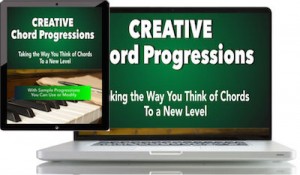Not every good song becomes a hit, and hopefully if you’re a songwriter you know this already. In many ways, what determines whether or not a song becomes a hit has to do with what the industry of the day has to say about it.
Hit songs, regardless of the decade, usually need to adhere to certain characteristics, including:
- Brevity. A hit song usually needs to come in under the 5-minute mark, and often under 4 minutes.
- Hook. Most hit songs have a chorus that is short, simple, repetitive and catchy, meant to grab audience attention right away.
- Simple chord progressions. Most hit songs are designed using a set of simple progressions that use the tonic (key) chord as a strong beacon.
- Simple, singable melodies. A hit song usually needs to be hummable or singable by the target audience.
- Engaging lyric. A hit song needs to have a lyric that makes a quick and easy emotional connection to the listener.
If you consider yourself to be a hit songwriter, your task is clear; you need to write short, simple songs that use a catchy hook and emotionally engaging lyrics. Not every hit song will do that, of course, but that’s the obvious formula for most of them.
I mention all of this because from time to time it’s important to remind yourself that not every good song will be a hit. And another way of saying that: just because your song doesn’t become (or isn’t the sort that’s likely to become) a hit does not mean that you’ve written a dud.
Back in the early days of progressive rock, for instance, there was little to no intention on the part of the groups writing and playing their songs that they’d be hits. Writing a song with broad commercial appeal was almost a clear sign that you were “selling out”, as they say.
So progressive rock songs were generally not short, not necessarily hook-based, using complex chords and melodies with a lyric that was at times hard to decipher.
And those songs were often the kind that would grow on you, so that you loved them more each time you heard them, because with each listening you were generally discovering more and more about the structure that made it work.
AM radio (and whatever medium has replaced it these days) has little interest in any song over a certain length, so there is a world of gems out there that many haven’t heard. As in any art form, some are musically deficient, but many are wonderful.
You may be the kind of songwriter that wants to write hits, and I say more power to you. There’s nothing wrong with that ambition. But it is worth reminding you that a hit song need not be your aim.
You can write good music – excellent music – that never gets media attention. If the melodies are good, if the structure is sound, and if the musical journey works, you’ve got the potential to build a fan base for what you do. You may build it more slowly, but there’s nothing wrong with that, either.
 Written by Gary Ewer. Follow Gary on Twitter
Written by Gary Ewer. Follow Gary on Twitter
 Right now, “Creative Chord Progression” is being offered FREE with your purchase of “The Essential Secrets of Songwriting” 10-eBook Deluxe Bundle. Lots of progressions for you to try, including ones that feature pedal point, modal mixtures, changing key, and more.
Right now, “Creative Chord Progression” is being offered FREE with your purchase of “The Essential Secrets of Songwriting” 10-eBook Deluxe Bundle. Lots of progressions for you to try, including ones that feature pedal point, modal mixtures, changing key, and more.











Pingback: Not Every Good Song Will Be a Hit - The Hit Songwriting Formula | The Hit Songwriting Formula